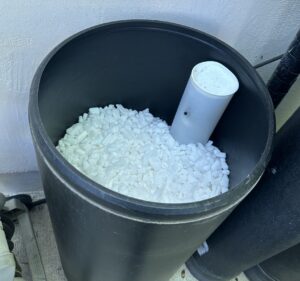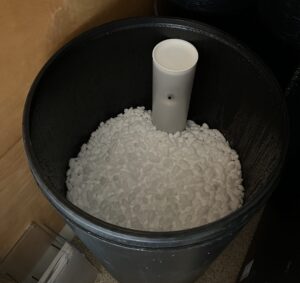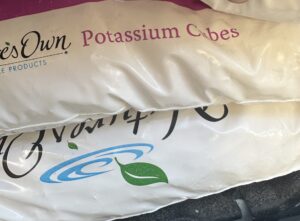Decoding the Salt in Your Water Softener: Best Water Softener Salt

At HomePoint, we recognize that the nuances in home maintenance play a pivotal role. This includes understanding the diverse types of salt utilized in water softeners, particularly in regions with hard water, such as Austin, Texas. The choice of salt is crucial, impacting both the effectiveness and durability of your water softening system. Let’s delve into the various salt options for water softeners, highlighting their advantages and disadvantages.
1. Solar Salt
Solar salt, produced through the evaporation of seawater, is available in both crystal and pellet forms. It’s favored for its affordability and efficiency.
PROS:
- Free from additives.
- Necessary for certain sanitizing water softeners or mixed bed softeners.
CONS:
- Contains some impurities.
- Larger crystals may dissolve more slowly.
2. Rock Salt (Not Recommended)
Extracted from underground salt deposits, rock salt is a more natural salt form but generally not recommended for water softeners.
PROS:
- More affordable than other types.
- Easily accessible.
CONS:
- Lower purity, leading to more insoluble deposits in your water softener, which increases maintenance.
- Can accumulate in the water softener tank over time.
3. Evaporated Salt
Evaporated salt, obtained by mining underground salt and evaporating its moisture, boasts high purity levels.
PROS:
- Exceptionally pure, minimizing buildup in your water softener.
- Highly effective in softening very hard water.
CONS:
- More costly than other types.
- Less readily available compared to rock or solar salt.
4. Water Softener Pellets (Generally Recommended)
 PROS:
PROS:
- Extremely pure, designed to prevent water softener clogs.
- Contains built-in cleaners to safeguard your appliances.
CONS:
- May be more expensive; however, the benefits in time and maintenance savings justify the cost.
5. Potassium Chloride
 Though not a salt, potassium chloride serves as a sodium-free alternative for water softening.
Though not a salt, potassium chloride serves as a sodium-free alternative for water softening.
PROS:
- Ideal for individuals on low-sodium diets.
- Environmentally friendly compared to traditional salt.
CONS:
- Not as efficient as sodium-based salts in water softening.
- More costly than traditional salts.
- Potential to clog water softeners.
